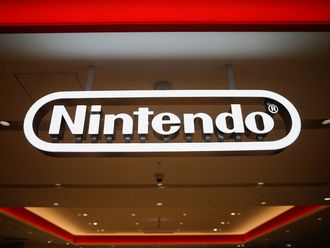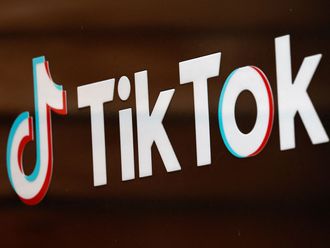From their control tower, surrounded by 16 screens monitoring every part of the 2.2m sq ft of warehouse space below, staff at John Lewis’s 58m distribution hub in Milton Keynes were braced for what they hoped would be the busiest online shopping day of the year.
So-called Cyber Monday had already had a sprinting start with 6,000 orders arriving before 6am. By 1pm the sales figures screen jumped as the lunchtime rush kicked in. Now the tally was more than 37,000 orders. Nearly 55,000 online sales were expected by dinner time, but staff were hoping it would be higher and beat last week’s all-time record of 61,000.
Meanwhile in Burton-on-Trent, around 40 Christmas pickers at Argos’s largest warehouse started packing boxes with gifts ranging from Barbie dolls to tablet computers.
Argos was expecting 300,000 Christmas gifts to be processed and dispatched to its regional distribution centres on Monday by the end of the day staff learned the total hit 360,000.
From regional centres boxes would be shipped to the 764 stores across the British Isles. Over Christmas, bosses expect around 55m items to pass through its 13 distribution centres.
“Kindles are flying off the shelves and there is huge demand for Apple’s iPads and the Samsung Galaxy,” said general manager Neil Brooks.
It was “the year of the tablet”, he said, with 1m gadgets sold this year thanks to the Christmas boost. Other popular lines include the Google Nexus, Argos’s own brand tablet, the CnM, the new Wii U console and the relaunched Furby.
Across the UK, Visa estimated 10,000 was spent online every second yesterday, an increase of 30% on last year, while research firm Experian said it expected 115m visits to online retailers.
Marks Spencer had recruited an extra 800 workers at its distribution centres and doubled the number of employees in its ecommerce call centre. Dom McBrien, multichannel trading director at MS, said: “During the lunch hour window we saw a record number of orders per minute and a threefold increase in traffic compared to Sunday.”
At Asda Direct, bosses expected to sell 50% more products than on an average Monday.
Back at John Lewis, a serious glitch the depot had run out of iPad minis in the early hours. The tablets are expected to be one of the biggest selling items.
Terry Murphy, head of national distribution, walked among the pallets of click and collect deliveries due to be shipped out to stores nationwide. It was not lunchtime yet but he was convinced it would be his busiest day.
He said: “By 10am we have a rough idea of what kind of day we’re going to have and whether we need to bring in extra staff or offer overtime. Today is definitely one of those days.”
By 2pm as the morning shift left for the day to be replaced by the afternoon workers, a sense of calm came over the warehouse, as the nearly nine miles of conveyor belts winding through a space as big as 31 football pitches ground to a halt.
Boxes of shirts, candles, Lego and cameras stopped whizzing past. “It’s the eye of the storm right now. Everything’s going to go crazy soon,” said Murphy.
In a tribute to the efficiency of the 1,000 staff the operation ran smoothly, and they hit their target of 600 items an hour to be sorted for shipment to stores.
Even the iPad Mini disaster was overcome when at 3pm a fresh delivery of the Apple bestsellers pulled into the warehouse and the race was on to get them up online in time for the evening rush.
With next-day deliveries now accounting for 54% of all online orders, it was then all hands on deck at the 44 dispatch terminals.
The average customer will order around three items, with a basket worth around 140, although Murphy revealed the average was 250 on the Friday before last coinciding with so called Black Friday in the US, when shops lure in customers with bargains immediately after the Thanksgiving holiday.
He said: “Black Friday really took us by surprise. We weren’t expecting such a huge rush because we don’t promote it. But because others were, we had to match them on price and the sales flooded in.”
Online sales have become big business for John Lewis, especially its click and collect service, where customers can pick up their items in store the following day.
In the warehouse, pallets set for Oxford Street in London, Cambridge, Manchester’s Trafford Centre and Cribbs Causeway, near Bristol, were filling up nicely, ready to be picked up and shipped to the stores overnight for collection.
James Leeson, head of online commercial at John Lewis, explained that multi-channel shoppers spend more than those who only go to shops and he emphasised just how important Cyber Monday has become.
He said: “Monday is always our busiest online trading day. People go to the stores over the weekend to do their research into exactly what they want to buy, then they use Monday to place their order.
“Cyber Monday is so important because it starts three-to-four weeks of really busy online shopping people have just been paid, they’ve seen the Christmas ads on TV and the new month gets people excited.”
However, not everyone is convinced by Cyber Monday, seeing it as another American import dreamed up by marketing people to compete with Black Friday.
Mothercare chief executive, Simon Calver, who overhauled the company’s website and brought in 24 hour click and collect services said his customers will wait longer than ever before buying their Christmas presents.
He said: “I don’t think Monday will be our busiest online day. I think it’s becoming a bit of a Mexican standoff with shoppers, to see who will blink first. Will the retailers reduce their prices early or not?”
Over at Curry’s and PC World, chief executive of parent company, Dixons Retail, Sebastian James agreed.
He said: “I don’t think Cyber Monday has the same power it may have had. It dates back to a time when you had to wait two weeks for a delivery, but now we do 24 hour delivery and will offer reserve and collect up until Christmas eve.”
Guardian News and Media 2012












